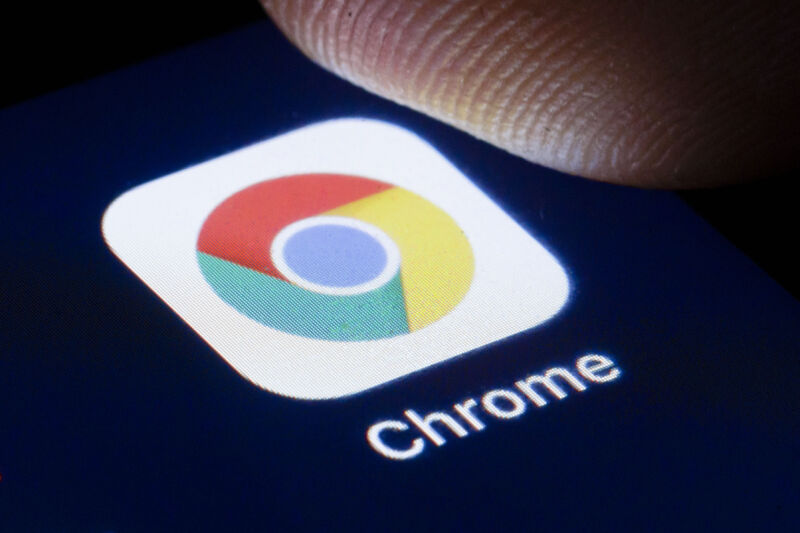Apple is being compelled to make primary adjustments to iOS in Europe, because of the Ecu Union’s “Virtual Markets Act.” The act cracks down on Large Tech “gatekeepers” with more than a few interoperability, equity, and privateness calls for, and a part of the adjustments demanded of Apple is to permit competing browser engines on iOS. The alternate, due in iOS 17.4, will imply rival browsers like Chrome and Firefox get to in the end deliver their very own internet rendering code to iPhones and iPads. In spite of what appears like a large growth to the iOS browser scenario, Google and Mozilla are not pleased with Apple’s proposed adjustments.
Previous, Mozilla spokesperson Damiano DeMonte gave a remark to The Verge on Apple’s coverage adjustments and took factor with the verdict to restrict the browser adjustments to the EU. “We’re nonetheless reviewing the technical main points however are extraordinarily disenchanted with Apple’s proposed plan to limit the newly-announced BrowserEngineKit to EU-specific apps,” DeMonte mentioned. “The impact of this might be to drive an impartial browser like Firefox to construct and take care of two separate browser implementations—a burden Apple themselves is not going to need to undergo.” DeMonte added: “Apple’s proposals fail to offer shoppers viable alternatives by means of making it as painful as imaginable for others to supply aggressive possible choices to Safari. That is any other instance of Apple growing limitations to stop true browser pageant on iOS.”
Apple’s framework that permits for choice browser engines is named “BrowserEngineKit” and already has public documentation as a part of the iOS 17.4 beta. Browser distributors will want to earn Apple’s approval to make use of the framework in a manufacturing app, and like every iOS apps, that approval will include a number of necessities. Not one of the necessities leap out as egregious: Apple desires browser distributors to have a undeniable degree of internet requirements fortify, pledge to mend safety vulnerabilities temporarily and offer protection to the person’s privateness by means of appearing the usual consent activates for get admission to to such things as location. You are no longer allowed to “sync cookies and state between the browser and some other apps, even different apps of the developer,” which turns out aimed without delay at Google and its desire to have all its iOS apps communicate to one another. The massive unfavorable is that your BrowserEngineKit app is restricted to the EU, as a result of—wonder—the EU laws most effective observe to the EU.
Talking of Google, Google’s VP of engineering for Chrome, Parisa Tabriz, commented on DeMonte’s commentary on X, pronouncing, “Sturdy accept as true with @mozilla. @Apple isn’t eager about supporting internet browser or engine selection on iOS. Their technique is overly restrictive, and gained’t meaningfully result in actual selection for browser builders.”
Nowadays, you’ll obtain what seem like “choice” browsers on iOS, like Chrome and Firefox, however those browsers are most commonly simply skins overtop of Apple’s Safari engine. iOS app builders are not in reality allowed to incorporate their very own browser engines, so the whole lot makes use of Safari’s WebKit engine, with a brand new UI and settings and sync options layered on best. That implies all of WebKit’s insects and have fortify choices observe to each browser.
Being caught with Safari is not nice for customers. Over time, Safari has earned a name as “the brand new IE” from some internet builders, because of lagging at the back of the contest in its fortify for complicated internet options. Safari has gotten significantly higher in recent years, even though. For example, in 2023, it in the end shipped fortify for push notifications, permitting internet apps to raised compete with local apps downloaded from Apple’s cash-cow App Retailer. Apple’s fortify of push notifications got here seven years after Google and Mozilla rolled out the function.
Extra pageant can be nice for the iOS browser area, however the fact is that pageant will most commonly be from the opposite large “gatekeeper” within the room: Google. Chrome is the undertaking with the assets and succeed in to raised compete with Safari, and dealing its method into iOS will deliver the internet with regards to a Chrome monoculture. Google’s browser could have higher fortify for positive internet options, however it is going to additionally include a integrated monitoring gadget that spies on customers and serves up their pursuits to advertisers. Safari has a a lot better privateness tale.
Even if most effective EU customers gets to choose between a number of in reality other browsers, everybody nonetheless has to compete within the EU, and that incorporates Safari. For the remainder of the sector, even they do not get an actual browser selection; competing within the EU browser wars must make the one iOS browser higher for everybody. The EU laws have a compliance time limit of March 2024, so iOS 17.4 must be out by means of then. Google and Mozilla had been operating on complete variations in their browsers for iOS for a minimum of a 12 months now. Possibly they’re going to be in a position for release?
